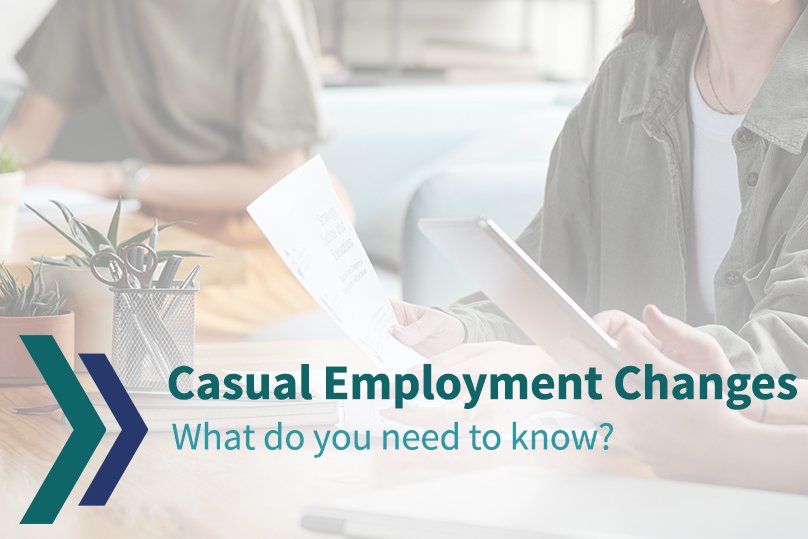New Definition of Casual Employment and Changes to Right to Conversion
The Fair Work Amendment (Supporting Australia’s Jobs and Economic Recovery) Bill 2020 (the Bill) has now passed both houses of Parliament in a significantly reduced form.
A definition of casual employment has been introduced into the Fair Work Act 2009 (Cth) (FW Act) and provides a statutory right to long term casual employees to request conversion to permanent employment. The casual conversion provisions go further than those found in existing Award provisions by creating a new proactive obligation on employers to offer conversion as opposed to an entitlement for employees to request it.
New definitions of Casual employment
If a person is:
offered employment without a “firm advance commitment to continuing and indefinite work”; and
the person accepts that offer,
the person is a casual employee regardless of any changes in the employment relationship. The offer of employment is the determining factor, not any subsequent conduct of the parties.
When determining whether a firm advance commitment to continuing and indefinite work exists, a Court will have regard to the following considerations only:
whether the employer can elect to offer work and whether the person can elect to accept or reject work;
whether the person will work as required according to the needs of the employer;
whether the employment is described as casual employment; and
whether the person will be entitled to a casual loading or a specific rate of pay for casual employees under the terms of the offer or a fair work instrument.
Right to casual conversion
Employers (other than small business employers with less than 15 employees) must offer to convert a casual employee to permanent employment if the employee:
has been employed for 12 months; and
during the last 6 months, has worked a regular pattern of hours without significant adjustment.
The offer must be to convert to either full-time employment (where the casual has worked the equivalent of full-time hours) or part-time employment consistent with the casual’s regular pattern of hours (where the casual has worked the equivalent of part-time hours).
Employer not required to make an offer
Employers are not obliged to make an offer if there are “reasonable business grounds” not to make the offer. The Employer must advise employees of this in writing within 21 days of the right to conversion arising.
Reasonable business grounds include:
where the conversion would require a significant adjustment to the employee’s hours of work in order for the employee to be employed permanently;
where the employee’s position will cease to exist in the 12 months after the conversion right arises;
where the hours of work which the employee is required to perform will be significantly reduced in the 12 months after the conversion right arises; and
if there will be a significant change in either the days or times on which the employee’s hours of work are required to be performed in the 12 months after the conversion right arises.
An employer is also required to give notice to casual employees who have been employed for 12 months where the employer is not making an offer because the employee has not worked a regular pattern of hours during the last 6 months.
If an employer fails to offer conversion or to give notice that they are not making an offer based on reasonable business grounds, the employee retains a right to request conversion at a later date.
Loss of right to conversion
An employee will no longer hold a right to request conversion if:
An employee refuses an offer to convert.
An employer has determined that there are reasonable business grounds not to make an offer of casual conversion and has notified the employee.
Right to offset
In circumstances in which an employee is found to have been incorrectly engaged as a casual (that is, they are deemed to be a permanent employee), there is an express right for employers to offset any leave entitlements owed to the employee against the casual loading paid. To benefit from this the relevant entitlements the loading is compensating for must be specified in the employment contract and/or relevant industrial instrument.
New Casual Employment Information Statement
The Bill requires the Fair Work Ombudsman to create a new Casual Employment Information Statement. This is to be provided to each casual employee on commencement of employment, supplementing the Fair Work Information Statement that employers already need to provide employees
What next?
Employers impacted by the changes should review their current processes and operational requirements for dealing with casual conversion and consider if contracts of employment will need updating.












